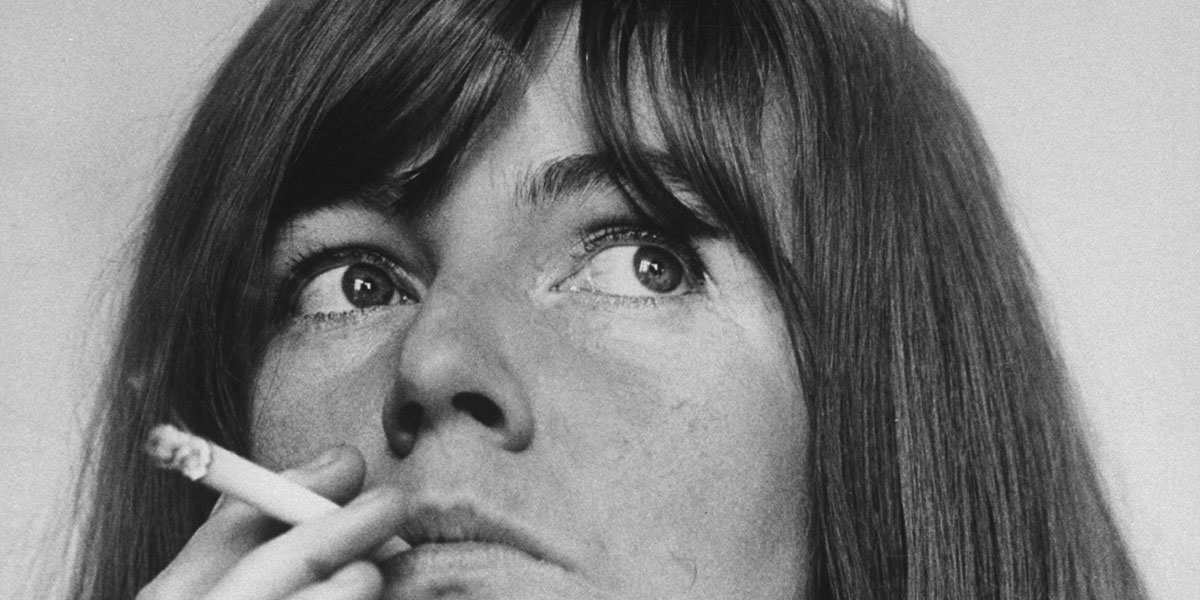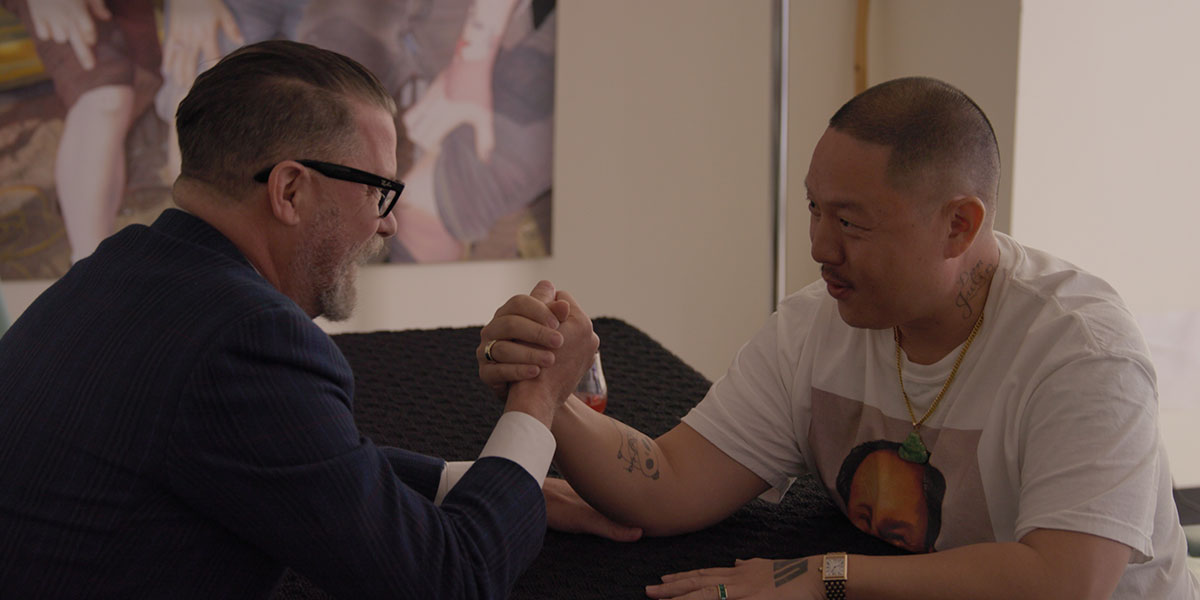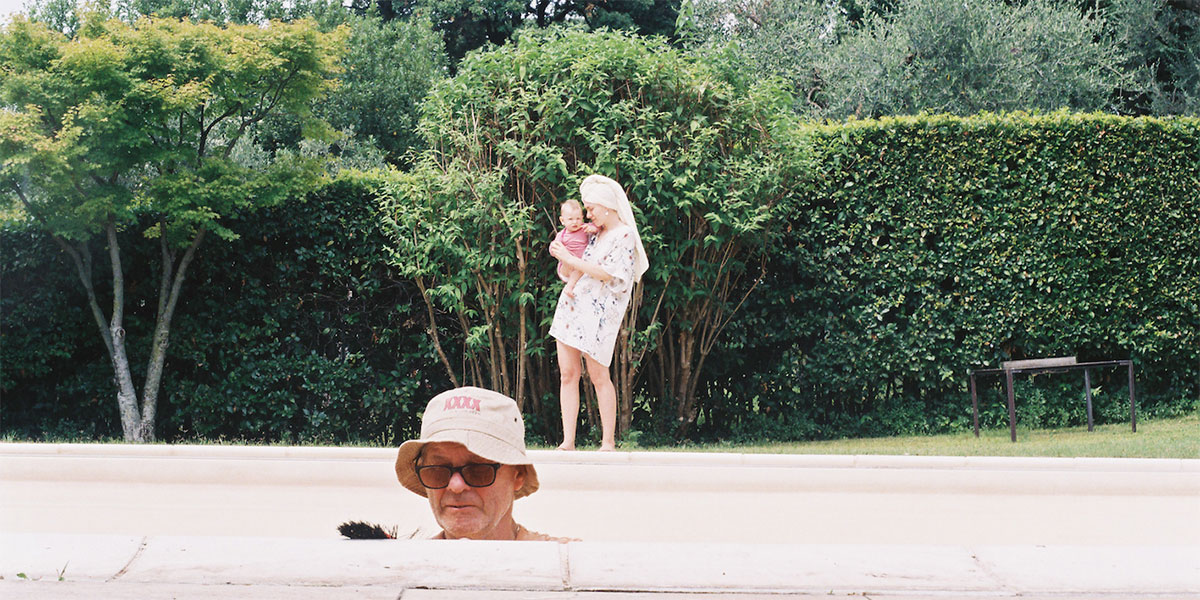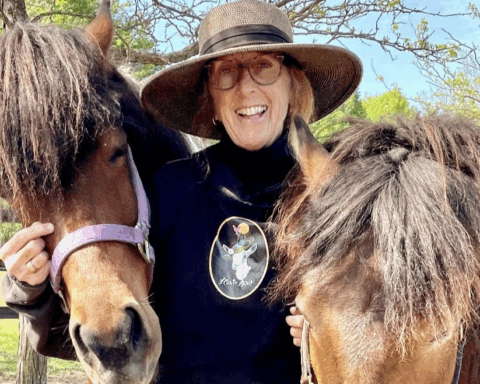Blue Road: The Edna O’Brien Story
(Ireland/UK, 98 min.)
Dir. Sinéad O’Shea
“This thing of falling in love,” Edna O’Brien says in Blue Road, “it’s such a nuisance.” The acclaimed Irish writer, who passed away in July 2024 at age 93, had a gift for words, but little luck in love. The writer shares her story with extraordinary vulnerability with director Sinéad O’Shea (Pray for Our Sinners) as O’Brien invites her into her modest rental apartment to hear her tale. O’Brien’s cluttered home isn’t the sight one expects for such an esteemed cultural icon, but it’s distressingly illustrative of the misogyny she faced for the intimacy and candour of her depictions of women’s sexuality. O’Shea does O’Brien’s story well, offering a fully formed character study that, like the writer’s works, tackles the social issues of Ireland’s oppressive Catholic bent.
Oscar-nominated actor Jessie Buckley (Women Talking) doubles as O’Brien’s voice to read her memoirs. Having two Ednas—one young and one old—illustrates the reach of a voice that’s touched readers across generations and irked others who likely didn’t turn a page of any of her books. The film tells how O’Brien grew up as an observant girl in Tuamgraney, County Clare and quickly proved a handful. She fell in love with a much older man, writer Ernest Gebler, and married him to her mother’s protests. The age gap brought a hint of scandal and notoriety that O’Brien would have to learn to live with throughout her life.
O’Brien recalls how she got her first job writing a magazine column under the pen name Sabiola. She doesn’t speak too fondly of the job, in part because Gebler had an outdated view of working women. Moreover, when she published her landmark book The Country Girls in 1960, a troubled marriage became a truly tempestuous one as Gebler proved envious of his wife’s success.
Glimpses at O’Brien’s diary illustrate Gebler’s escalating pattern of pathetic jealousy. Notes in red offer his ripostes to O’Brien’s own diary entries. The author finds a sad note of humour to all the “corrections” her husband would issue to her inner thoughts or even to her most mundane note-taking about the day.
O’Brien had a lifelong struggle with men, too, as O’Shea chronicles the controversies that the author faced book after book. O’Brien and various talking heads tell how one title after another was banned in Ireland and decried as smut for what were then taboo expressions of women’s desire. Emotional nakedness pairs with anatomical flirtations in the snippets of O’Brien’s prose that leave little to the imagination. Yet for all the brouhaha about these depictions of women as sexual beings—controversy that erupted to the put that commentators wished death upon the author—Gebler had the audacity to claim O’Brien’s books as his own. The film finds echoes of the Glenn Close drama The Wife—about a woman whose husband wins the Nobel Prize for books she’d been writing all along—and delivers equally provocative commentary about the voices silenced by patriarchal culture.
Even after Edna leaves her marriage, she tells a tale of struggles and delayed success. In the 1970s, the popularity of her books and the success of some Hollywood adaptations—one film even won the Golden Globe—brought her some money. However, O’Brien admits that money simply slipped through her fingers as she relished a new notoriety for throwing wild parties. Attracting suitors like Marlon Brando and Robert Mitchum, while striking up friendships with the likes of Jackie O, O’Brien recounts a unique position within popular culture: a celebrity who worked at a college by day and partied with the biggest names on the planet by night, all while staying true to a voice that took social issues to task.
O’Shea harnesses the impact of O’Brien’s work with equally incisive takes on the Catholic Church and its repressive grip on women’s lives. There’s a telling moment late in the film when O’Shea’s voice appears from behind the camera. She asks O’Brien if she’s been able to process all the trauma she’s experienced during her life. The author’s response, simply, is a sharp “no.” Then another. Then another. And another. She just says “no,” twelve times with increasingly shaky delivery, all the while dabbing her mouth, chin, and neck with the handkerchief she keeps tucked away. The lingering trauma is palpable in the nonagenarian’s voice.
By the end though, O’Brien lives long enough to enjoy recognition of her work and reappraisal of her impact. She takes pride in saying that she had enough money to buy a plot for herself. It’s not a Hollywood ending, but one that’s truly fitting of a work that bears Edna O’Brien’s name.













